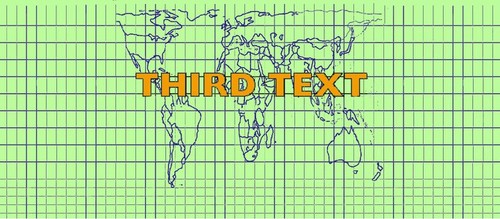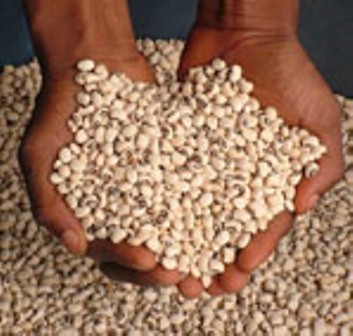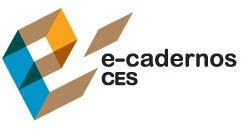
OPEN CALL FOR PAPERS TO A SPECIAL ISSUE OF THIRD TEXT
Guest Editors: Paul Goodwin & Lúcia MarquesOne of the most striking aspects of the globalization of the art world is the massive increase in interest in the work of contemporary African artists. This has been reflected in the spectacularly enhanced presence of African artists in global Biennial exhibitions, museum collections and in commercial galleries and art fairs. The tremendous growth of interest in contemporary African art has been matched by a deluge of scholarly texts, journals and books dedicated to this subject such as the important, encyclopedic collection ‘Contemporary African Art Since 1980’ by Okwui Enwezor and Chika Okeke-Agulu (2009, Damiani Press).
However on closer inspection it is apparent that the geographies of African art presented in these studies is skewed towards an Anglophone (and Francophone to a lesser extent) perspective of ‘contemporary African art’. In particular ‘Lusophone’ Africa is poorly represented if at all. Although there are several Lusophone artists in Enwezor and Okeke-Agulu’s anthology, there is no analysis of the specific context of Lusophone African art production in the text. ‘Lusophone’ is not even mentioned in the index. This absence or neglect is, in fact, quite common in presentations of contemporary African art in the English speaking world. This lacuna is one of principal rationales driving this Special Issue of Third Text.
We start with a question that is simple in appearance but tellingly complex at the same time: What is contemporary Lusophone African art? Under question here are a number of key terms that need to be unpacked if we are to address this issue in a critical and challenging way: ‘contemporary’, ‘Lusophone’, ‘African’ and ‘art’. Each term is contested territory in its own right but in bringing them together within an interrogative form we are striving to open up a discursive platform in which these complex terms can be debated, critiqued and repositioned. For example, so-called ‘Lusophone Africa’ is not a seamless whole. It includes a variety of countries each with very different social, political and cultural histories. In acknowledging this complexity, it is the hope of the editors that a significant gap in the geography of knowledge production of contemporary African art can begin to be addressed and in turn generate more research and debate across language and cultural borders.
Contributors to this special issue of Third Text are invited to present papers and book reviews that addresses this question: “What is contemporary Lusophone African Art?”. By questioning the label of “contemporary Lusophone African Art” we intend to gather a number of manuscripts that can debate the existence of an artistic production with a circumscription mainly related to a colonial language heritage.
This geographical focus which relates to the international circulation of young artists coming from Portuguese-speaking African countries will be the starting point to question the on going mapping of “Lusophony”, “Francophony”, “Anglophony” by ex-colonial powers under the pretext of “shared” languages and cultures. This is frequently seen either as “neo-colonial” appropriation by institutionalised powers (especially in political events), or as a strategic entry point into the international artistic circuits that some artists can take advantage of.
In this sense, a reflection about “contemporary Lusophone African Art” in a post-colonial context should also stimulate a variety of studies by authors beyond the “Lusophone” cartography, encouraging perspectives from the various “Africas”. We call for contributions which favour a transdisciplinary approach, including comparative studies, giving priority to those which, under a theoretical or empirical perspective, question the conceptual bases, the possibilities, the limits and the borders of “contemporary Lusophone African Art”.
The following are some themes and questions suggested by the editors to be addressed by potential contributors. These suggestions arise from the editors research and discussion and are by no means exhaustive:
1) Does “contemporary Lusophone African Art” exist?;
2) (De)construction of African Identities through artistic expressions;
3) The role of art as interface between trends and imported cultural models;
4) Art and political intervention;
5) Artistic responses to war, conflict an armed struggle: the relationship of artistic production to independence movements;
6) Notions of diaspora, ‘race’ and national identity. Is there a Lusophone ‘South Atlantic’ that links Africa, Brazil and Portugal that is analogous to Paul Gilroy’s ‘Black Atlantic’?;
7) Rise of biennials and triennials (eg. Luanda Trienniale). How does “Europe” contribute to the project of “African Art” in Lusophone contexts?
This special issue invites contributions, not exceeding 6000 words in length, from artists, art historians, theoreticians and intellectuals interested in exploring through original manuscipts any of the issues pertaining to “What is Contemporary Lusophone African Art?”. The authors’ names and corresponding bibliographic references (500 characters max.) must be included in the document’s title page, which must also have the authors’ institution. The submitted manuscripts must be accompanied by five keywords and when preparing the manuscripts, authors must observe the formatting and the submission regulations of Third Text journal, available at http://www.thirdtext.com/authors-guidelines/. Manuscripts must be submitted in English. In exceptional circumstances only we may be able to provide some help for translation of texts.
Abstracts written in English, (500 words max.) including the manuscript’s title, should be sent by email attachment no later than 21st July 2011 to the Guest Editors Paul Goodwin & Lúcia Marques at [email protected] (upon acceptance, final papers are due by 1st February 2012).
The Editors: Paul Goodwin is a curator, urban theorist and researcher. He is an Associate Research Fellow at the Centre for Urban and Community Research, Goldsmiths College and Curator, Contemporary Art at Tate Britain. Lúcia Marques is a Lisbon based independent curator. She is President of XEREM cultural association (Triangle Network) and a member of AICA-International Association of Art Critics. +INFO
= http://www.thirdtext.com/






